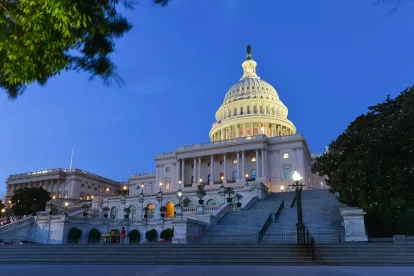Late last week, the House and Senate sent to the President a two-year bipartisan budget/debt ceiling agreement, The Bipartisan Budget Act of 2015 (House vote 266-167; Senate vote 64-35).
In addition to suspending the debt limit through March 15, 2017, the proposal raises sequestration-level discretionary budget caps by $80 billion over two years – $50 billion in FY 2016 and $30 billion in FY 2017 – equally divided between defense and nondefense programs:
-
FY 2016 Defense – from $523 billion to $548 billion
-
FY 2016 Nondefense – from $493.5 billion to $518.5 billion
The bill also directs an additional $32 billion into the Overseas Contingency Operations (OCO) account for FY 2016 and FY 2017 ($16 billion each year, $5 billion less than the President’s request).
Additionally, the bill: (1) prevents an increase in Medicare Part B premiums for some beneficiaries that is scheduled to go into effect in January; (2) prevents the expiration of the Social Security disability insurance trust fund anticipated for late next year; (3) repeals an Obamacare requirement for large (200+ employees) employers to automatically enroll employees in healthcare plans; and (4) renames the first floor House wing of the Capitol – the House rotunda – as the “Freedom Foyer”.
The bill is paid for through a variety of offsets, such as: the sale of 58 million barrels of oil from the Strategic Petroleum Reserve from 2018-2025; an auction of federal spectrum; an extension of the 2 percent payment cut to Medicare under the sequester and creation of a “flat benefit” for disability recipients; changes to the crop insurance program; changes to the Social Security disability insurance fund and Medicare payments to doctors and other health care providers; and increased premiums for the Pension Benefit Guarantee Corporation (PBGC), among others.
Appropriators will now focus their efforts on reconciling the House and Senate appropriations bills, and revising funding levels across the bills to accommodate the increase. This process will likely be complicated by policy rider disagreements over environmental issues, Planned Parenthood funding, and Obamacare.
This Week’s Hearings:
-
Wednesday, November 4: The Senate Budget Committee will hold a hearing on the budget process, including a biennial approach.
-
Friday, November 6: The Senate Appropriations Committee, Military Construction, Veterans Affairs, and Related Agencies Subcommittee will hold a field hearing to review whistleblower claims at the U.S. Department of Veterans Affairs.



 />i
/>i

